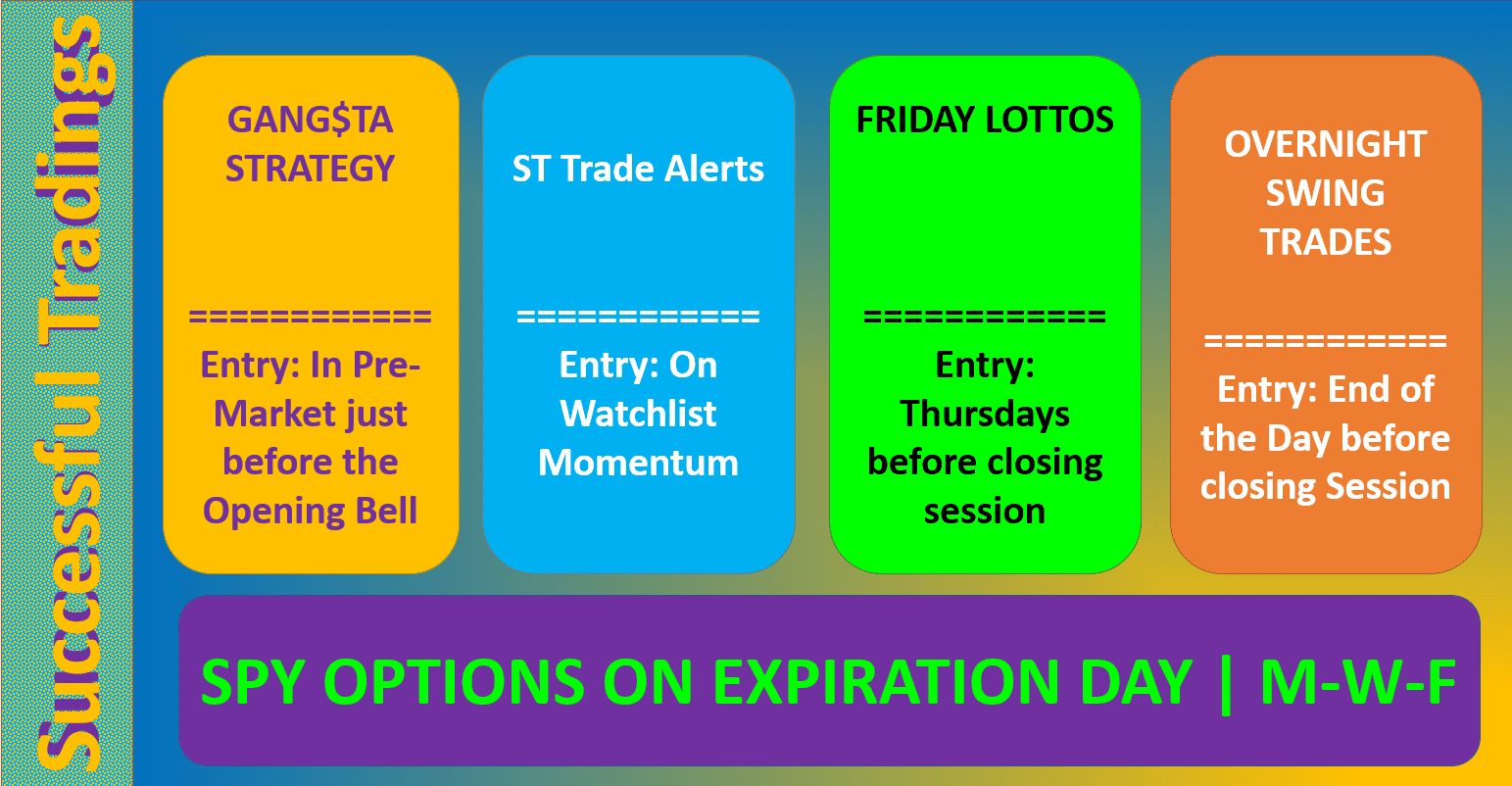Investing your hard-earned money can be a daunting task, especially when navigating the complex world of options trading. But fret not, dear reader, for this comprehensive guide will unveil the intricacies of options trading, empowering you with the knowledge and confidence to make informed decisions.

Image: successfultradings.com
What are Options?
Options are financial instruments that grant you the right, but not the obligation, to buy or sell an underlying asset at a specified price within a specific timeframe. Think of them as insurance policies for your investments, providing flexibility and the potential for significant returns.
Types of Options:
There are two main types of options:
-
Calls: These give you the right to buy an asset at a predetermined price (called the strike price). If the asset’s value rises above the strike price, you can exercise your call option to purchase it at a profit.
-
Puts: These give you the right to sell an asset at a predetermined strike price. If the asset’s value falls below the strike price, you can exercise your put option to sell it for a profit.
Understanding the Options Market:
Options are traded on exchanges, where buyers and sellers negotiate prices and execute contracts. Each option contract represents 100 shares of the underlying asset.
Factors Influencing Option Prices:
The price of an option is influenced by several factors, including:
- Underlying asset price: The value of the underlying asset directly impacts the option price.
- Strike price: The difference between the underlying asset price and the strike price affects the option price.
- Time remaining until expiration: Options with longer time until expiration tend to be more expensive.
- Volatility: Options on more volatile assets tend to be more expensive.
Understanding Option Premiums:
When you buy an option, you pay a premium to the seller. This premium is the price of the option contract. The premium is influenced by the factors mentioned above.
Leveraging Options for Strategic Trading:
Options offer traders various strategies to achieve different investment goals, such as:
- Speculating on price movements: Buy or sell options based on predictions about future asset prices.
- Hedging against risk: Use options to offset the risk of owning or selling a particular asset.
- Income generation: Sell options to generate income while maintaining ownership of the underlying asset.
Essential Tips for Option Traders:
- Educate yourself: Thoroughly understand how options work before trading. Consult credible sources and seek guidance from experienced traders.
- Manage your risk: Options trading involves inherent risk. Always set clear risk parameters and trade only with funds you can afford to lose.
- Consider time decay: Options lose value over time, so factor this into your trading strategy.
- Monitor market conditions: Stay informed about market news and economic indicators that may affect option prices.
- Seek professional advice: Consider consulting with a financial advisor for personalized guidance and support.
Conclusion:
Navigating the world of options trading requires a comprehensive understanding of its mechanisms and responsible risk management. By embracing the knowledge and insights shared in this guide, you can unlock the potential of options and make informed investment decisions that align with your financial goals. Remember, investing involves risk, and it’s crucial to approach it with a well-informed and strategic mindset.

Image: www.investopedia.com
How Do Trading Options Work

Image: www.youtube.com






